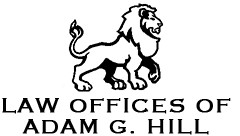Consumer Protection

A consumer protection lawyer specializes in protecting consumers from unfair, deceptive, or fraudulent business practices. If you're dealing with an issue related to defective products, misleading advertising, contract disputes, or unfair treatment by a business, a consumer protection attorney can provide valuable help. Here's how:
1. Understanding Your Rights
- Clarifying Legal Protections: Consumer protection laws are designed to safeguard your interests as a buyer, whether you're dealing with faulty products, deceptive marketing, or unethical business practices. A lawyer will explain your rights under federal, state, and local laws.
- Identifying Violations: They can help identify whether a business or contractor has violated consumer protection laws. This might include laws like the Fair Credit Reporting Act (FCRA), Consumer Fraud Act, or The Truth in Lending Act.
2. Investigating and Documenting Your Case
- Gathering Evidence: A consumer protection lawyer will assist you in gathering the necessary evidence to support your claim. This could include documentation, communication records (emails, contracts, receipts), photographs, or product testing results.
- Investigating the Business: Lawyers may also conduct investigations to determine whether the business has a pattern of deceptive or unfair practices that could strengthen your case.
3. Negotiating Settlements
- Negotiating with Businesses: Often, consumer protection cases can be resolved through negotiation without needing to go to court. A lawyer can negotiate on your behalf, seeking compensation, refunds, or exchanges, and ensuring that you’re treated fairly by the business.
- Demand Letters: One of the first steps a consumer protection lawyer might take is sending a demand letter to the business, outlining the issue and requesting resolution. This formal step often leads to a quicker resolution.
4. Filing Complaints with Regulatory Agencies
- Filing with the FTC or State Authorities: If the business has violated federal or state laws, a lawyer can help you file complaints with relevant regulatory agencies like the Federal Trade Commission (FTC), the Consumer Financial Protection Bureau (CFPB), or your state’s attorney general's office. These agencies may investigate the business and take enforcement action.
- Better Business Bureau (BBB) or Other Groups: They may also help you file complaints with consumer advocacy groups or industry-specific regulatory bodies (e.g., if the issue relates to health products, you might contact the Food and Drug Administration (FDA)).
5. Pursuing Legal Action
- Filing Lawsuits: If negotiations or regulatory complaints do not resolve the matter, a consumer protection lawyer can help you file a lawsuit against the business. Depending on the case, you may pursue:
- Breach of contract: If the business did not fulfill its promises under a contract.
- Fraud or misrepresentation: If the business engaged in deceptive or fraudulent practices, such as false advertising.
- Product liability: If a defective product caused harm or damage.
- Unfair trade practices: If the business engaged in unfair or unethical practices under local or state laws.
- Class Actions: In cases where a business has harmed many consumers in a similar way, a lawyer can help you join a class action lawsuit, which may result in a collective legal remedy.
6. Seeking Compensation and Damages
- Refunds and Compensation: A consumer protection lawyer will help you seek remedies like refunds, replacements, or repairs for faulty products or services.
- Damages for Harm or Losses: If you’ve suffered financial loss, emotional distress, or other damages, your lawyer can help you seek appropriate compensation, including:
- Actual damages: The amount you’ve directly lost (e.g., a defective product).
- Punitive damages: In cases of particularly egregious conduct, a lawyer may help you pursue punitive damages, meant to punish the business and deter future misconduct.
- Statutory Damages: Some consumer protection laws allow for additional statutory damages (fixed amounts set by law) if the business violated certain regulations.
7. Defending Against Unfair Debt Collection Practices
- Debt Collection Abuse: If you're being harassed by debt collectors or have been subjected to unfair debt collection practices, a consumer protection lawyer can defend your rights under laws such as the Fair Debt Collection Practices Act (FDCPA). This includes stopping collectors from using threats, lies, or abusive tactics to collect a debt.
8. Dealing with Defective Products or Services
- Product Warranties and Defects: If you've purchased a defective product or were misled about its quality or purpose, a consumer protection lawyer can help you enforce warranties or file a legal claim under product liability laws. This could apply to everything from appliances and vehicles to electronics and even construction services.
- Recalls and Safety Violations: In the case of dangerous or unsafe products, a lawyer can help you navigate recalls and pursue legal action for injuries or damages caused by the product.
9. Unfair or Deceptive Advertising
- False Advertising: If a business engaged in deceptive or misleading advertising that led you to make a purchase or enter into a contract, a consumer protection lawyer can help you seek compensation. This includes violations of truth-in-advertising laws and misleading statements about a product or service.
- Misrepresentation and Fraud: If a business intentionally misrepresented its products or services, a lawyer can help you pursue legal action for fraud or misrepresentation.
10. Enforcing Consumer Contracts
- Consumer Contracts: If you're dealing with a business that is refusing to honor a contract (such as a service agreement or product warranty), a lawyer can help enforce the contract terms, whether by pursuing the business for breach or demanding compensation for nonperformance.
Conclusion
A consumer protection lawyer plays an essential role in helping you navigate disputes with businesses that engage in deceptive, unfair, or fraudulent practices. They not only ensure that your rights as a consumer are protected but also provide legal expertise in resolving your issues through negotiation, regulatory channels, or litigation if necessary.
If you’re facing problems with a business, whether it’s a defective product, misleading advertisement, unfair debt collection, or contract disputes, a consumer protection attorney can be your advocate to ensure you get the justice and compensation you deserve.
Would you like to explore a particular type of consumer protection issue? Contact us today for a free case evaluation.
